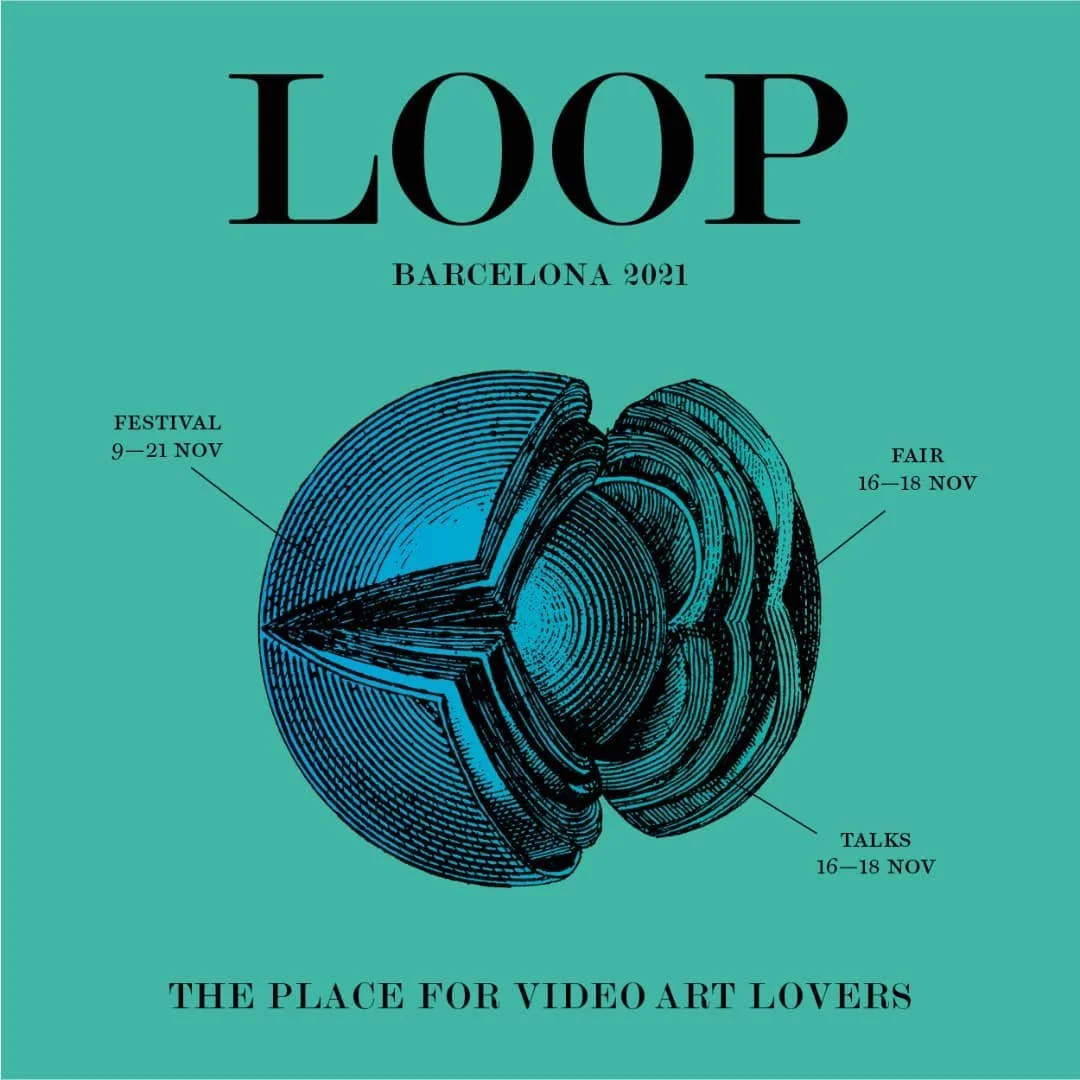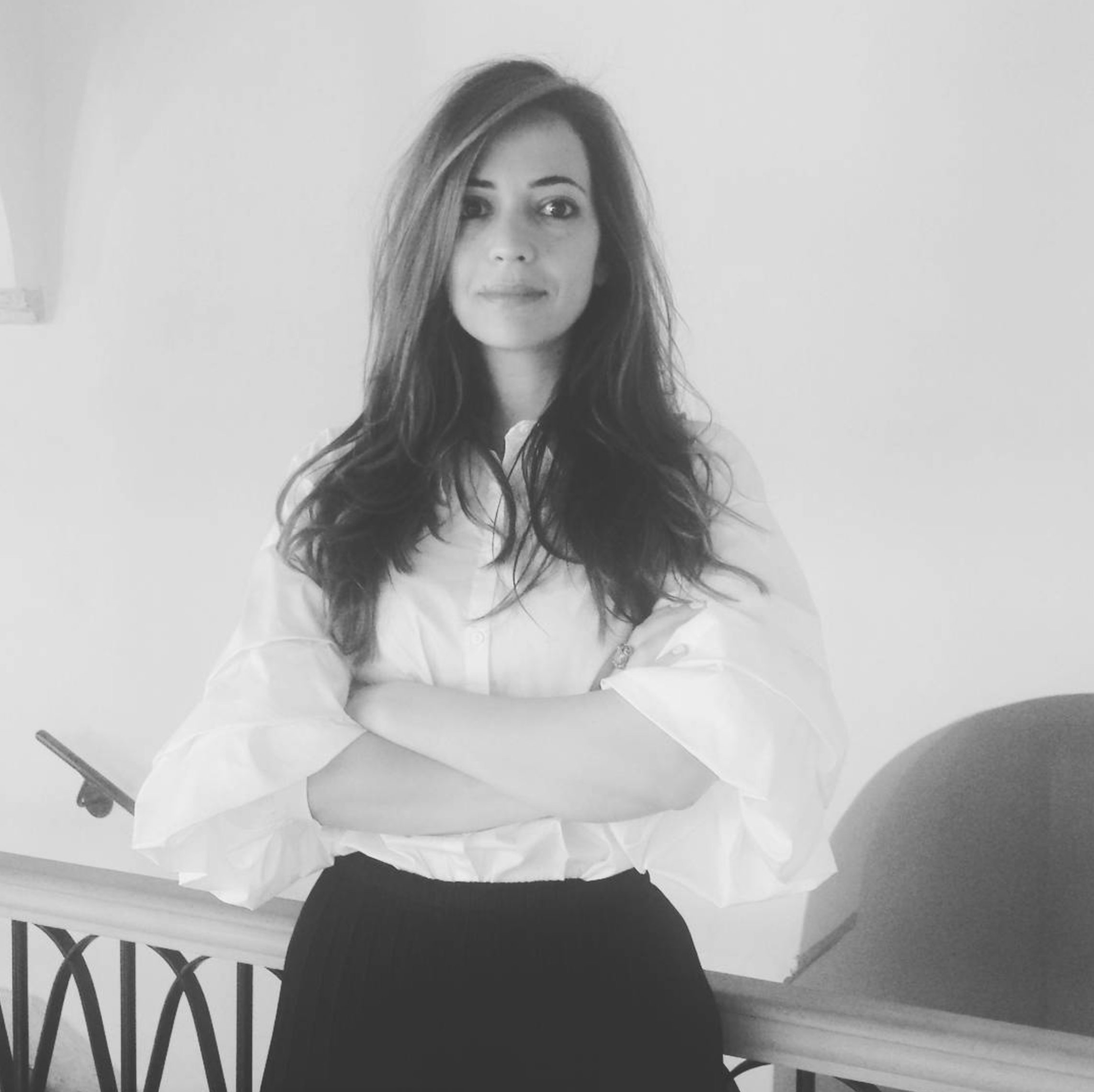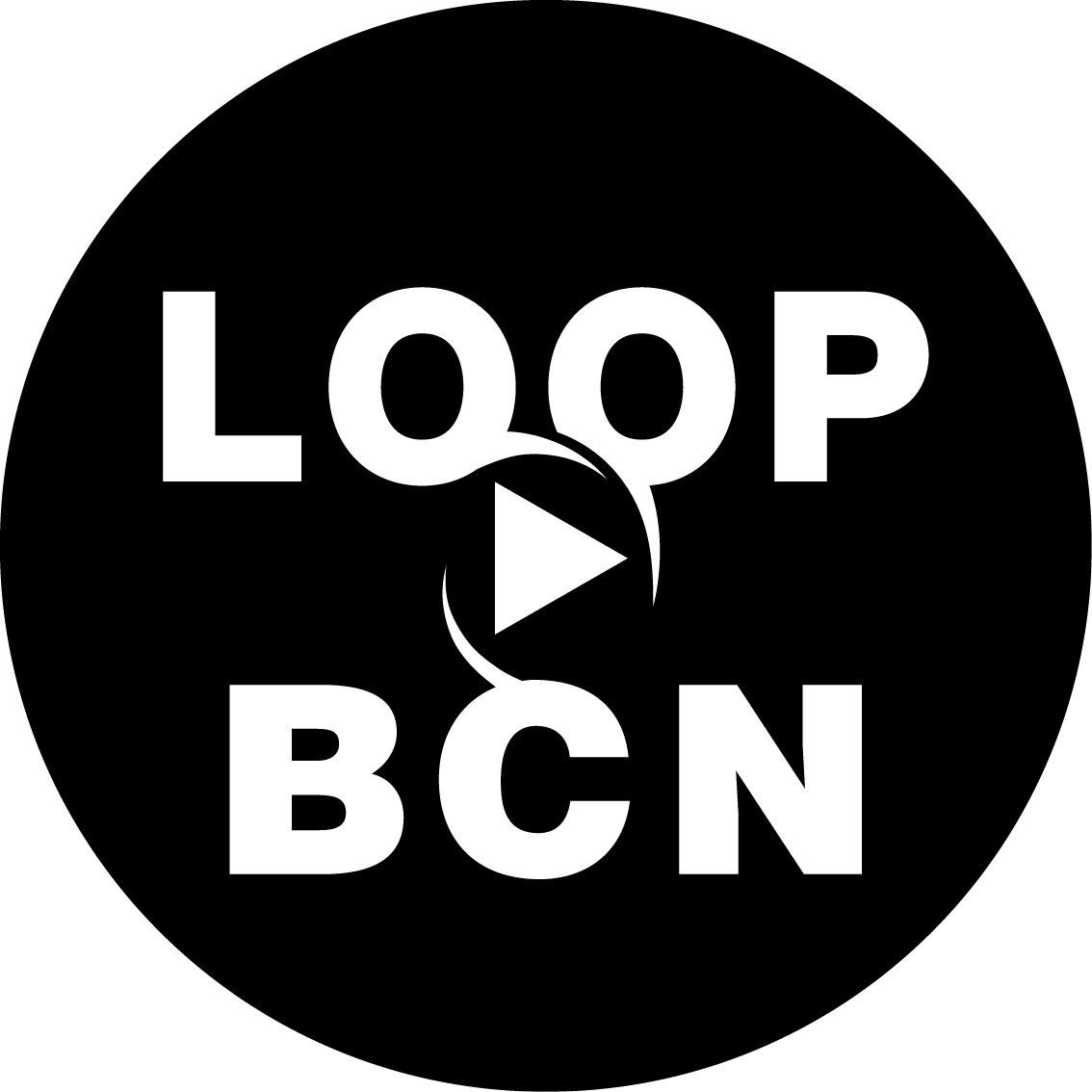Land, Identity and the Machine by Mohamed Benhadj | LOOP Video Art Fair Barcelona
Land, Identity and the Machine by Mohamed Benhadj
Khadija Hamdi for LOOP Video Art Fair
In her collaboration with Mohamed Benhadj, art curator and founder of Al-Tiba9, the Tunisian art advisor and curator Khadija Hamdi highlight her most profound interest in creating links between North African galleries and international art fairs.
We had the scoop from Khadija about her role as a curator and what she shared with our readers:
"One thing I'd like to highlight in the LOOP project is precisely the notion of LOOP. A Loop is used to make things more visible, more important, etc.
I joined LOOP as Partnership Middle East to attract galleries from a region that has never been presented at the Loop fair. In this case, the North Africa and the Middle Africa East region. It was an opportunity for me to give visibility to galleries that had not participated in Loop and artists from the region. To succeed, I had to ask patrons in the region to allow galleries to participate (by covering their participation fees for the fair). This has created an incredible synergy and energy between LOOP, galleries, and the patrons (some of whom are collectors) while boosting a new scene that has never been present at LOOP.
This same energy allowed an artwork from a North African gallery to represent artwork in MACBA and received the Awards Price, Loop 2021.
Apart from giving visibility to artists and galleries from the MENA region, I found it interesting to go further in the idea by inviting this time an art curator from the same region to select several videos and write a curatorial text about his selected artworks displayed inside the fairs by international galleries. Then, I invited Mohamed BEnhadj for that role as one of the active curators from North Africa.
This approach would never have been possible without the help of patrons who believed in this notion of giving visibility and made it possible to make the fair's videos even more noticeable since the curator was able to find links between four videos highlighting a project ready to be exhibited beyond the LOOP Art Fair." Khadija said.
khadija Hamdisoussi, Art advisor & Curator
On his side, the curator Mohamed Benhadj has shared his curatorial vision, as you can read in the next below >>
Curatorial text by Mohamed Benhadj
LAND, IDENTITY, AND THE MACHINE…
In a modern world dominated by consumerism and run amok capitalism, defining one’s identity has become ever more challenging. Artists working on the front lines have been processing this fundamental issue facing humanity; Who are we? What are we becoming?
Even before the global pandemic positioned the entire world to confront its fear and anxiety head-on, visionary artists were busy experimenting with fear and anxiety as factors relevant to the already apparent global chaos. Sharpened now through the lens of an actual pandemic, emotions have further aroused a sense of conflict and constraint, inspiring pockets of struggle and resistance.
In her recent work Drown, artist Chen Qiulin showcased by A Thousand Plateaus Art Space (Chengdu) confronts the struggle for identity and freedom. A performer confined within a wooden mold becomes entangled in a tragic struggle with Tofu, a material representative of the artist’s reflections on her cultural identity. This visceral ritual reveals the struggle with powerless fragility and resistance, exposing a vulnerability concealed in the female experience.
Drown (still), video, 13 min 30 s, 2021 © Chen Qiulin - Courtesy A Thousand Plateaus Art Space
Drown (still), video, 13 min 30 s, 2021 © Chen Qiulin - Courtesy A Thousand Plateaus Art Space
Another feature which has a powerful impact on social identity is land development. As cities continue to grow, new urban expansion leads to family relocations, as well as the destruction of homes and generations of memories. Every human has seen or heard of such experiences. It happens in every city in the world. Closer examination of the effects of such powerful change on human identity and existence is not only powerful but vital to our understanding of where we are headed as a society.
The artwork Dust by Karolina Bregula is the story of two women living in a building that has been earmarked for demolition for urban development. They are the last inhabitants of the structure. As they wait to be evicted, they see the jackhammers destroying the neighborhood. Made in collaboration with Ai-Yun Huang and Xiang-Ping Zhou, two residents awaiting the demolition of their home, this series of 5 short films represents the deconstruction of property and the real-life experiences of those confronting the fear and anxiety of restarting their lives. From the physical depiction of the building demolition to real conversation, Bregula positions the viewer within and in front of this ever-growing crisis.
Dust (still), video, 45 min, 2019 © Karolina Breguła - Courtesy lokal_30 (Warsaw)
Dust (still), video, 45 min, 2019 © Karolina Breguła - Courtesy lokal_30 (Warsaw)
Families are left to feel powerless and faceless in front of such chaos. Such finality is placed upon them, involuntarily. The only thing they can do is to see everything disappear. This is a serious worldwide problem which leaves its victims feeling just as lost, concerned, and helpless as those enduring a global pandemic. Seeing homes literally wiped from the land, knowing that lives are being destroyed or changed forever, makes us all in some way a part of this loss of identity and heritage. What was here before? What is here now? Where am I in all of it?
Dust (still), video, 45 min, 2019 © Karolina Breguła - Courtesy lokal_30 (Warsaw)
Just as is depicted in the single frame artwork On the Beach by Goran Skofic. Sea. Sky. Beach. And people, who are headed someplace. Some seem to be searching for something. Others appear to be waiting. Some are quiet. Others are talking. Some are alone. Some are in the company of others. Some aren’t here. Some can hear something. Others pretend to hear. Some aren’t sure if they have seen this before; others think things were different. Some seek something better, while others remain in the gallery and watch them leave.
On the Beach (still), video, 24 min, 2016 © Goran Skofic - Courtesy Galerie Dix9 (Paris)
Lastly, we find ourselves watching machines perform the task of erasing part of our collective identity, furthering the need to fix our identity onto something that allows us to survive and evolve - machines.
In his artwork The Pegasus Dance, Fernando Sánchez Castillo masterfully illustrates our romance with machines with an emotional narrative featuring anti-riot water cannon vehicles. The vehicles play out a dance set to a Strauss waltz, transforming them from instruments of violence and oppression into symbols of art and culture. The play of natural light through the water, together with the music creates an intoxicating scene, reminiscent of a bucolic landscape painting.
Pegasus Dance (still), video, 11 min 27 s, 2007 © Fernando Sánchez Castillo - Courtesy Albarrán Bourdais (Madrid)
Pegasus Dance (still), video, 11 min 27 s, 2007 © Fernando Sánchez Castillo - Courtesy Albarrán Bourdais (Madrid)
Deeper reflection leads us to consider our place in the world. Have we unknowingly committed to surrendering ourselves and our emotions to machines? As we continue to rely on machines and machine intelligence to manage our needs, are we not emotionally dependent upon our machines and software to define who we are?
As machines continue to assume greater roles in rebuilding our world, it is worth considering the emotional capacity that machines might someday attain. As we reflect on our own destructive nature, humans might soon realize that we are the real threat, and machines are fighting to achieve the balance we need to continue our existence on this planet.
The combination of these 4 videos provides the public with a series of interrogations in which the artists are representing the collective protagonist and the vulnerability that is needed to heal the wounds of human identity.
By Mohamed Benhadj
ABOUT LOOP VIDEO ART FAIR >>
LOOP is a platform dedicated to the study and promotion of the moving image.
Founded in 2003, since its creation it offers a specialized audience a curated selection of video-related content from challenging perspectives. While teaming up with an international community of artists, curators, gallerists, collectors, and institution directors to develop projects which aim at exploring the capacities of video and film in today’s contemporary art discourses, it yearly hosts LOOP Barcelona, a special meeting point that unfolds into three main sections.
Mohamed Benhadj | Biography>>
Mohamed Benhadj - Art Curator
Mohamed Benhadj, is one of the influential art curators in Algeria. Being the booster of the International Cultural Exchange in contemporary art in North Africa, he strengthened the possibilities of change and growth for international artists by exchanging and promoting art on a broader level.
Driven by his vision of a common global platform to provide growth opportunities to emerging artists in contemporary art, Benhadj established Al-Tiba9 in 2013. His focus has been on the international exhibition of modern art, performance, and design, promoting the exchange between art institutions and artists gathering in an Arab social-cultural environment.
Mohamed Benhadj has been carrying on his journey for over ten years now where he has collaborated with the Ministry of Culture, Museums, Art Institutions, Embassies, and Art Centers, became the most active curator from Algeria, a cultural partner, and Ambassador of the Arte Laguna Prize, a famous art competition in Arsenale of Venice, Italy.
His goal is to create a new pole of contemporary art in North Africa, offering the world a unique experience of creativity, possibility, and growth like no other around the globe.



















